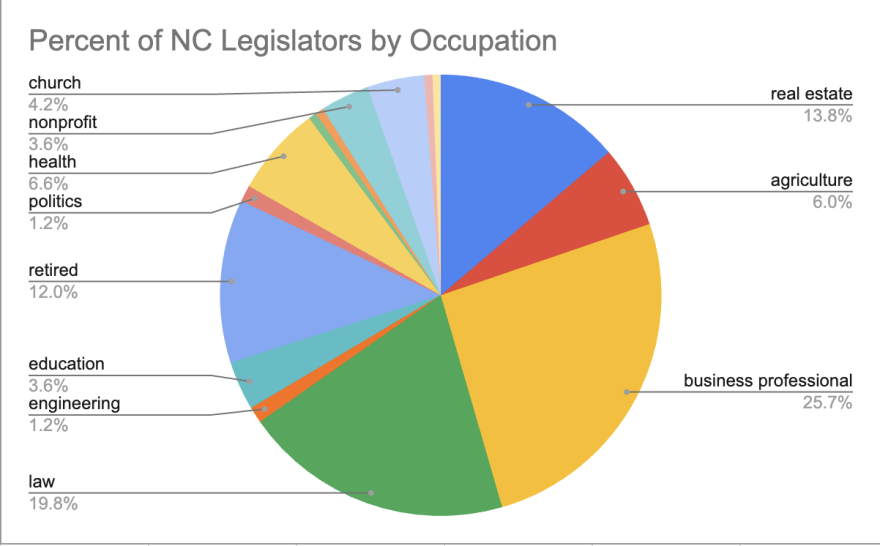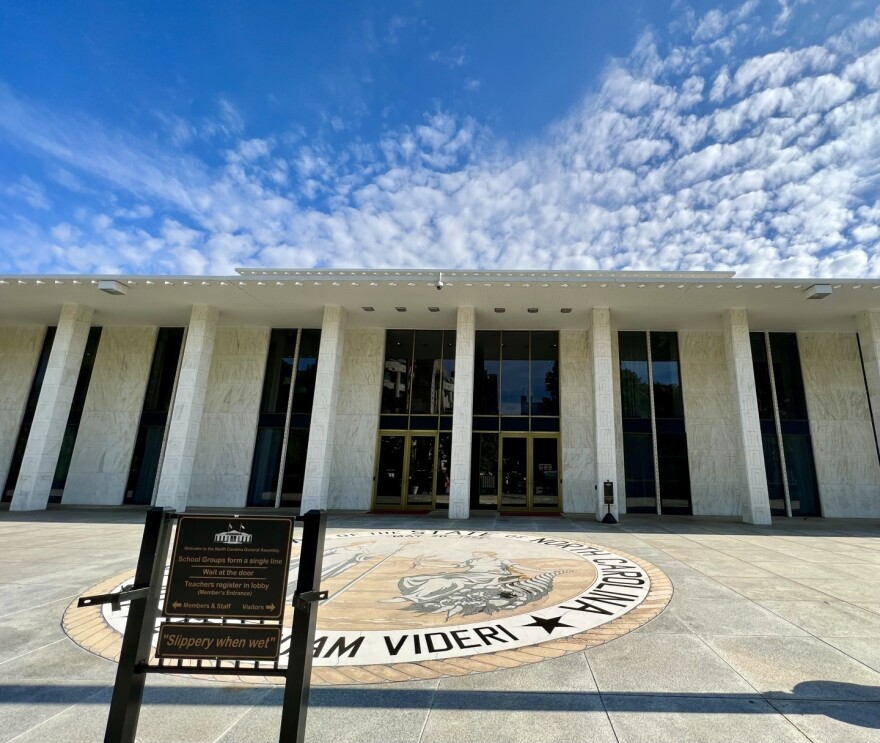The North Carolina General Assembly is currently in session, considering bills on a variety of issues that could shape residents' future.
For this week's Carolina Curious, WFDD's DJ Simmons was wondering: What professions are most common among state legislators?
An analysis shows the three job sectors most members come from are business, law and real estate.

This chart generated by WFDD staff shows the breakdown of NC legislators by job sectors.
Simmons recently spoke with Chris Cooper, a political scientist professor at Western Carolina University, to discuss the implications of these findings.
Interview highlights
On why some occupations are more likely to be represented than others:
"A state like North Carolina, where we pay our state legislators $13,951 a year, we have irregular session lengths. It could be very short or very long, and they don't have a lot of staff. So to make life work, if you're a member of the General Assembly, you have to have another job or be retired and getting retirement. And so that's why you tend to see occupations like law, like real estate."
On the drawbacks to one occupation being overrepresented:
"There is a well-documented lack of blue collar workers in lots of parts of politics. And so ideally you want a general assembly, a legislature, a representative body that has a representative set of experiences."
On how conflicts of interest are created:
"Most legislators are going to be, again, active on issues they know more about. Well, those are going to be ones, perhaps, that are connected to their occupation. And so does that present some conflicts of interest? Yeah, of course it does. You know, that doesn't mean that they're doing the wrong thing or motivated by the wrong reasons, but they do have a vested interest."

